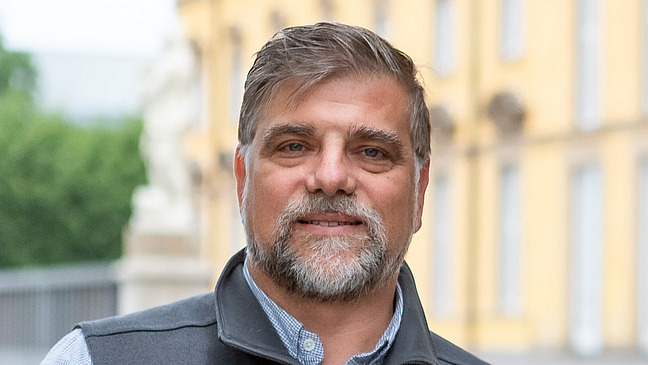About the Person
The Professorship of Modern History and Historical Migration Research is a founding professorship of the Research Center Institute for Migration Research and Intercultural Studies [IMIS] of Osnabrück University and at the same time a corner professorship of the Department of History [HistOS].
The department examines Germany and Europe in their global context from the 19th to the 21st century.
In teaching, the team covers socio-historical processes and their translation into history in politics, economics, society and culture. The core topics of our research are interdisciplinary & reflexive historical migration research, the social history of violence and war, Jewish history and Northwest German regional history. The methods and possibilities of the digital humanities form an important access.
Lines of research
Lines of research
Historical migration research
In historical migration research, together with our cooperation partners, we examine the biographical dimension of migration and mobility as well as the negotiation of migration relationships in migration regimes between individuals, collectives and institutions. We pay particular attention to normative institutionalization processes, the modelling of mobility phenomena on the basis of life course data, the exploration of memories and narratives, practices of dating migration in organizations and forms of discursive production of migration and mobility in changing contexts and media.
Forms of knowledge production - and thus the social attribution of meaning to migration, which contribute to the establishment of social regulation in migration societies - are central objects of investigation. The focus is on violence-induced migration (forced migration), state-regulated labor migration and Jewish migration in the 20th century.
- This field of work also includes sub-project A3 and the transfer project of the Collaborative Research Center 1604 "Production of Migration", for which Prof. Dr. Christoph Rass is co-responsible.
- In addition, Prof. Dr. Rass is involved as Principal Investigator in the research area 'Futures of Migration' (FuturMig) at IMIS, which was set up by the Lower Saxony state government via the Volkswagen Foundation.
- The Negotiating Migration research group at the Chair of Modern History and Historical Migration Research is closely linked to the SFB 1604 and deals with global displacement management in the context of the forced migrations triggered by the Second World War.
- Together with the international and interdisciplinary research group Translations of Migration , Christoph Rass also examines the production of meaning of key migration policy terms such as "integration" or "guest work".history of organized violence
Organized violence
Our research on the history of organized violence in the "age of extremes" concentrates on the social profile analysis of groups of perpetrators and victims as well as on the institutional structures, practices and processes that can be identified within them, always with a view to broader socio-historical implications.
- Our research focuses primarily on the context of Nazi rule, the German war of extermination, the German occupation regimes during the Second World War and the Shoah.
- Connections between knowledge production and practices of domination are increasingly coming to the fore; the critical reflection of data as a construction of historical reality is directly linked to our questions in historical migration research.
- As a further focus, we have established the Interdisciplinary Conflict Landscape Research working group at Osnabrück University in cooperation with neighboring disciplines in the natural and cultural sciences, which in its first working phase from 2014 to 2024 under the direction of Prof. Dr. Christoph Rass has dedicated itself to the interactions between the material and discursive levels of places shaped by violence and thus also addresses questions of memory and historical culture. Our research in this area currently focuses on sites of violence and camp sites in the context of the Nazi era.
Digital humanities and interdisciplinary approaches
Our lines of research are closely linked by digital humanities methods and interdisciplinary perspectives. The NGHM working group specializes in the analysis of personal historical mass data, GIS-supported evaluations and visualizations as well as three-dimensional digital representations of material culture, whereby the latter are also used in the sense of public history. The application and evaluation of digital exhibition platforms is therefore of particular importance in research and teaching.
- Several projects draw their objects of investigation from regional and national history and illustrate our close local networking.
- We advocate a critically reflective and transparent approach to AI applications in order to responsibly exploit their potential for research and teaching.
Public mediation and cooperation
The examination of individual and collective translations of the past into history and its representation in narratives, exhibitions, material culture or commemorative practices is a core area of historical thinking and, as public history , is closely linked to our specialist historical work.
- A critically reflected communication of historical contexts is therefore a central concern of the Department of Modern History and Historical Migration Research.
- Closely interlinked with research and teaching, we maintain collaborations with museums, archives and memorial sites, participate in exhibition projects and digital forms of communication and bring our research into a wide variety of social contexts through intensive lecture activities.
More detailed information on the research lines of the Modern History and Historical Migration Research working group can always be found on the NGHM science blog.
